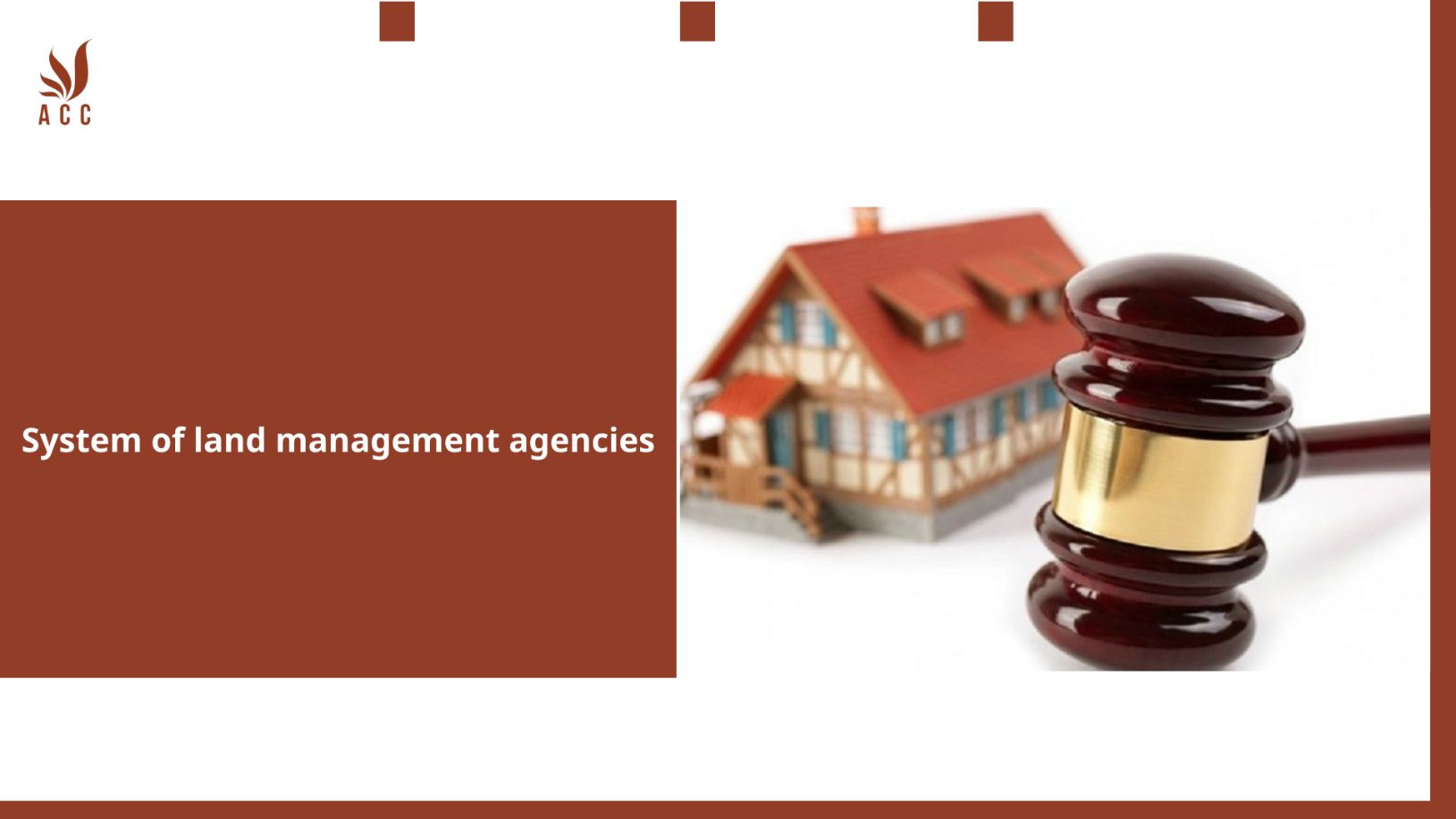A system of land management agencies refers to the various government entities and organizations responsible for overseeing and regulating land-related matters within a specific jurisdiction. These agencies play essential roles in land use planning, land ownership registration, environmental protection, and ensuring that land resources are managed efficiently and in accordance with local laws and regulations. The specific structure and responsibilities of land management agencies can vary from one country or region to another, but some common components include:

1. Land Registry or Land Title Office:
Responsible for maintaining records of land ownership, land titles, and property boundaries. They oversee the legal transfer of land titles and help resolve land ownership disputes.
2. Land Use Planning and Zoning Department:
Develops and enforces land use plans, zoning regulations, and building codes to guide urban and rural development. This department ensures that land is used in a way that aligns with regional development goals and environmental sustainability.
3. Agricultural Land and Rural Development Agencies:
Focus on managing and supporting agricultural and rural land use, promoting sustainable farming practices, and providing resources to rural communities.
4. Environmental Protection and Conservation Agencies:
Play a crucial role in conserving natural resources and protecting environmentally sensitive areas. They may regulate land use near water bodies, wetlands, and protected habitats.
5. Forestry and Natural Resource Management Agencies:
Responsible for the sustainable management of forests and other natural resources. They may issue permits for logging and land reclamation and ensure that land is used in ways that promote long-term resource sustainability.
6. When using ACC Law Firm's land-related services, entrepreneurs will receive
When using ACC Law Firm's land-related services, entrepreneurs will receive expert advice and assistance in navigating various legal aspects of land ownership and transactions. This includes guidance in property acquisitions, leases, zoning regulations, land use planning, and any other land-related legal matters. ACC Law Firm's team of experienced attorneys will provide personalized support to entrepreneurs, ensuring compliance with applicable laws and regulations, protecting property rights, and optimizing the value of their land investments.
7. Q&A
What is a system of land management agencies, and what is its purpose?
A system of land management agencies is a network of government organizations responsible for the administration, regulation, and oversight of land-related matters within a jurisdiction. These agencies play a crucial role in managing and controlling land use, property rights, land allocation, and related policies. The primary purpose is to ensure the efficient and sustainable use of land resources, safeguard property rights, and enforce land-related laws and regulations.
What are the typical functions of land management agencies within this system?
Land management agencies typically perform several functions, including:
a. Land Registration and Title Issuance: Recording property ownership and issuing land titles or deeds.
b. Zoning and Land Use Planning: Determining land use regulations, zoning laws, and development plans.
c. Land Survey and Mapping: Conducting land surveys and creating accurate land maps.
d. Land Acquisition and Redistribution: Managing government land acquisitions, redistribution, and land reform programs.
e. Environmental Protection: Enforcing land-use regulations to protect the environment and natural resources.
f. Dispute Resolution: Handling land-related disputes, mediation, and arbitration.
g. Property Taxation: Collecting property taxes and assessing property values.
How does the system of land management agencies vary from one country to another?
The system of land management agencies can vary significantly from one country to another due to differences in legal systems, governance structures, cultural norms, and historical land ownership practices. Some countries have centralized land management agencies, while others have decentralized systems where local and regional authorities play a more significant role. The specific functions and responsibilities of these agencies can also differ widely based on local needs and regulations.
What are the challenges faced by land management agencies in their operations?
Land management agencies often encounter various challenges, including:
a. Land Corruption: Corruption within agencies can undermine land management processes and transparency.
b. Land Grabbing: Illegitimate acquisition of land can lead to disputes and loss of property rights.
c. Inefficient Processes: Complex and inefficient bureaucratic processes can slow down land registration and other services.
d. Land Conflicts: Land disputes, often arising from unclear property boundaries or competing claims.
e. Environmental Concerns: Balancing land development with environmental preservation and sustainability.
f. Rapid Urbanization: Managing land resources in the face of rapid urban growth and expansion.
g. Access to Land: Ensuring equitable access to land and property rights for all citizens.
Efforts to address these challenges typically involve legal reforms, improved governance, and increased transparency within land management agencies.
Nội dung bài viết:






Bình luận